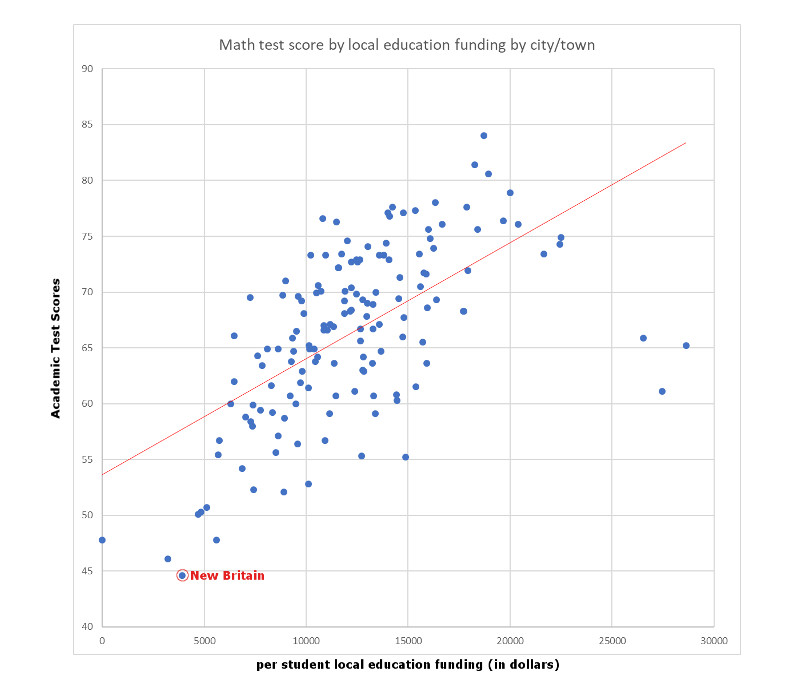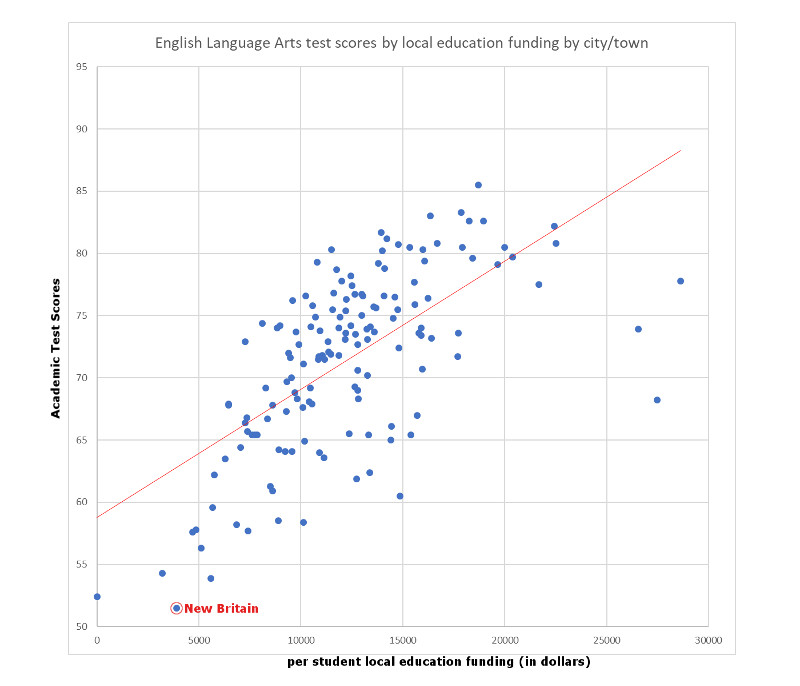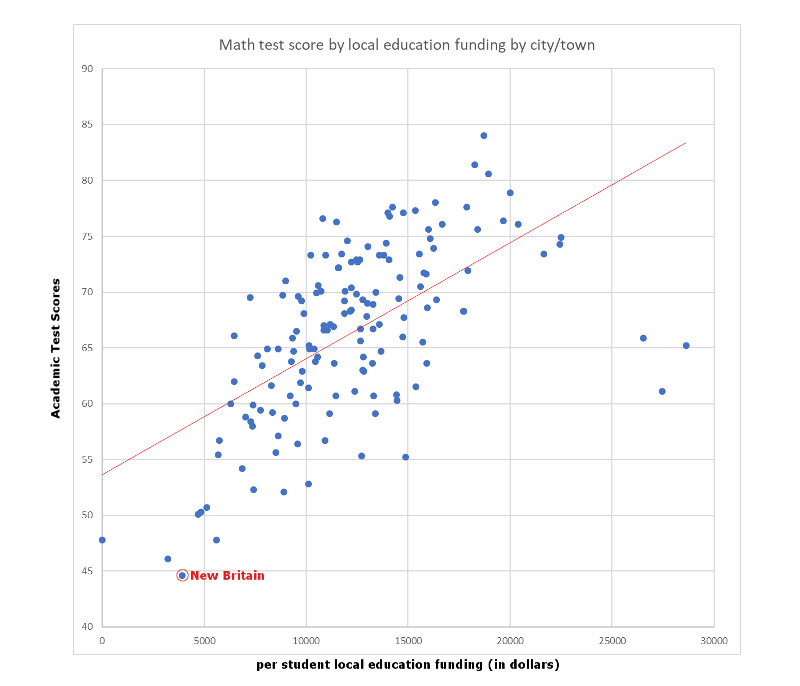Republican Mayor Erin Stewart’s proposed budget for New Britain in the upcoming budget year apparently freezes city operating funding for schools again.
Stewart has proposed that the city operating allocation to New Britain schools, called the, “BOE Appropriation Rollup,” in the city budget, should receive $0 of new funding in the city budget year that starts July 1, 2020 and ends on June 30, 2021. It is presently funded at $125,700,000.

City education funding, the amount of money that the city allocates from local taxes to fund the regular annual budget of the city’s schools, has become a significant issue for New Britain.
As, the New Britain Progressive has reported, the low amount of education funding provided by the city government appears to be correlated with low student academic test scores in New Britain.
Stewart has been criticized for the low city commitment to funding for the operation of the city’s schools, repeatedly freezing the amount of money that the city allocates locally to its schools, despite millions of dollars in increases in funding for City Hall departments.
Last year, Stewart did propose, and the Council approved, a transfer to the school system of the money from a grant that the state provides to the city to support special education. That special education grant averaged be $3.3 million between the 2016 and 2019 budget years. That money, being passed on the school system, was the single largest increase in annual operating education funding Stewart has provided to city schools in her seven years as mayor. But that budgetary slight-of-hand was a one-shot boost to the schools’ budget, only providing a real increase in the budget approved last year.
Even with the increase last year, Stewart’s budgets to have only increased city funding for New Britain schools’ operating budgets by an average of less than 0.7% per year.
The New Britain Progressive reported in 2019 that, despite New Britain receiving, “the fifth highest state Education Cost Sharing grant funding of all of the cities and towns in the state,”
New Britain’s own local commitment to education, on the other hand, is among the lowest municipal school districts in the state. Only Bridgeport allocated less local funding per student than New Britain in the 2015-2016 state data.
While New Britain residents have less money than the state average to fund local services, the New Britain Progressive reported that, even looking at a percent of the city’s ability to pay, the city of New Britain still appeared to allocate to its schools, “the second lowest among municipal school districts in the state.”
The New Britain Progressive also reported that,
Comparing the amount of local support for education, using the 2015-2016 data, to the most recent academic test scores appears to show a general correlation between how much a city or town provides in local funding for their schools and the test scores of the students in their schools. The comparison appears to show New Britain’s place near the bottom of both local education funding and test scores as part of a larger pattern, with New Britain near the low end of the scale.


The New Britain Progressive reported that it would appear to take a $14 million per year increase from the city to get the city up to the average amount cities and towns spent as a portion of their local ability to pay four years ago, apparently leaving New Britain’s city commitment to annual school operating budgets far behind the benchmarks that appear correlated with higher educational outcomes.
The state Educational Cost Sharing Grant funding for New Britain schools was increased by the state legislature by $3,865,021 for the 2019-20 budget year.




